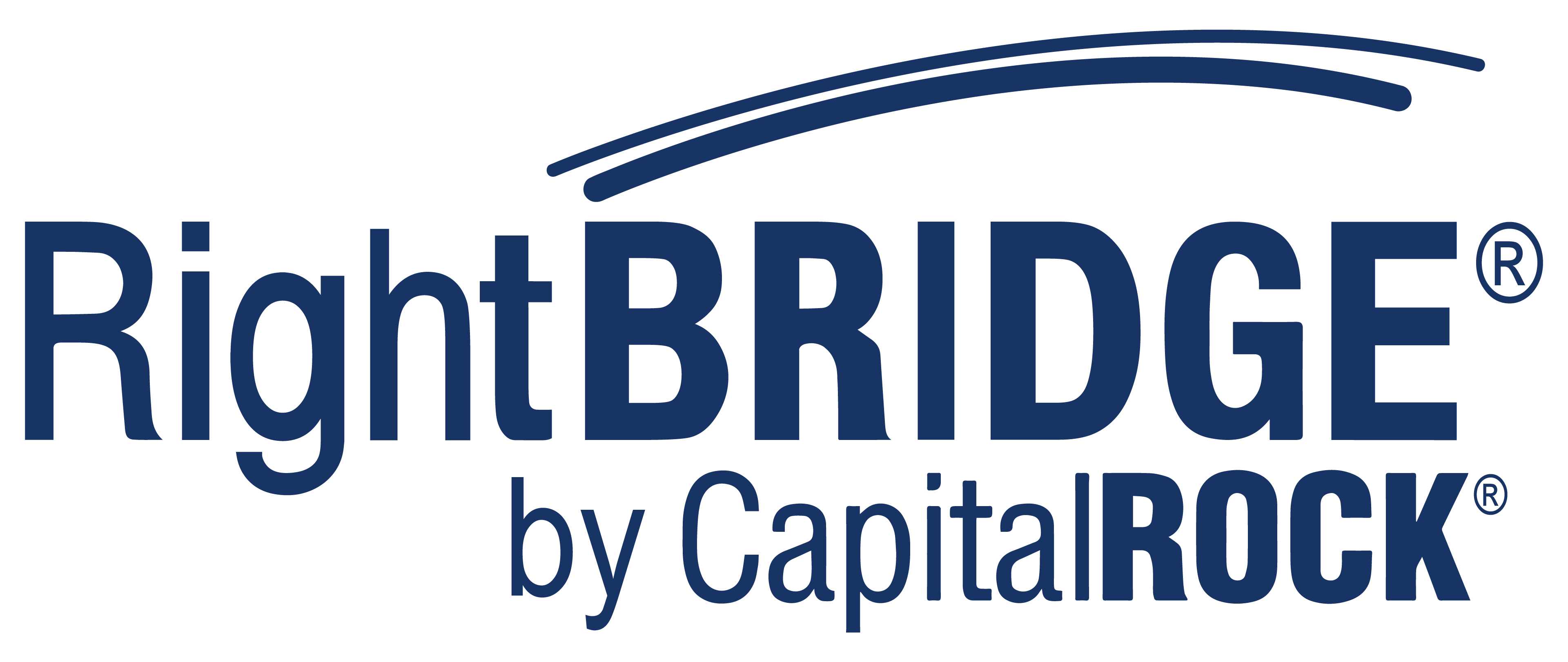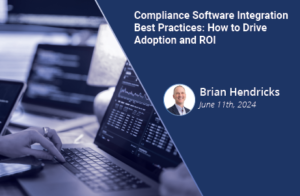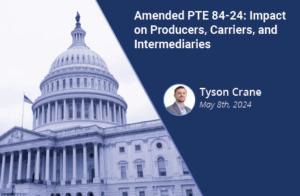May 8th, 2024 | Tyson Crane, VP of Product Mangement, CapitalROCK
On April 25th, 2024, the Department of Labor published its final version of the Retirement Security Rule and the related exemptions to the Federal Register. The regulation defines what constitutes fiduciary investment advice and the necessary requirements to find relief under available prohibited transaction exemptions such as PTE 2020-02 and PTE 84-24.
Under the final rule, a person is an investment advice fiduciary if they provide a recommendation in one of the following contexts: [1]
- The person either directly or indirectly (e.g., through or together with any affiliate) makes professional investment recommendations to investors on a regular basis as part of their business and the recommendation is made under circumstances that would indicate to a reasonable investor in like circumstances that the recommendation:
- is based on review of the retirement investor’s particular needs or individual circumstances,
- reflects the application of professional or expert judgment to the retirement investor’s particular needs or individual circumstances, and
- may be relied upon by the retirement investor as intended to advance the retirement investor’s best interest; or
- The person represents or acknowledges that they are acting as a fiduciary under Title I of ERISA, Title II of ERISA, or both with respect to the recommendation.
As a gross generalization, basically any transaction that involves a recommendation of a rollover of an ERISA plan or an IRA will trigger fiduciary status. If an individual is looking to receive compensation for that transaction, then they must find relief under a prohibited transaction exemption.
Insurance producers and insurers are most impacted by the amendment to PTE 84-24. This article will summarize and highlight the impact of the changes and those most affected in the annuity industry. I will assume in this article that you as the reader are familiar with the existing PTE 84-24.
High Level Review of Notable New Requirements
I’ve reviewed the final version of the amendment to PTE 84-24 and compared it to other “best interest” regulations such as NAIC’s Suitability in Annuity Transactions Model Regulation (#275).
Here are a few of the high-level requirements that are found in the amendment to PTE 84-24 that we will review:
- Fiduciary Acknowledgement Disclosure
- Impartial Conduct Standards
- Best Interest Documentation and Rollover Disclosure
- Policies and Procedures
- Annual Retrospective Review
PTE 84-24 Amendment Timeline
Before we jump into the details of the requirements, let’s first look at the timeline. The final rule states that there is a 150-day pre-effective period before the amendment becomes effective on September 23rd, 2024.[1] The Department of Labor has embedded a one-year phase-in period where only a subset of the requirements will be expected. Starting September 23rd, 2025, the phase-in period ends, and the full PTE conditions will be required. This phase-in period aligns with the same one-year compliance period the Department provided when it originally granted PTE 2020-02.[1]
Independent Producers must provide a Fiduciary Acknowledgement Disclosure to the Retirement Investor and abide by Impartial Conduct Standards during the phase-in period. Insurers do not have any immediate responsibilities during the phase-in period; however, it is expected that the period is used to prepare for the September 23rd, 2025, enforcement date.
Who is impacted?
Independent Producers
In the final amendment to PTE 84-24, the scope of relief for insurance products has been narrowed to two key items:
- Only recommendations of non-securities are covered
- Only recommendations by Independent Producers are covered
The rule defines “Independent Producer” as “a person or entity that is licensed under the laws of a State to sell, solicit or negotiate insurance contracts, including annuities, and that sells to Retirement Investors products of multiple unaffiliated insurance companies and (1) is not an employee of an insurance company); or (2) is a statutory employee of an insurance company that has no financial interest in the covered transaction.”[1] Based on the final rule, only Independent Producers recommending a non-security annuity will be able to find relief from PTE 84-24. Recommendations involving a security annuity will need to use PTE 2020-02.
Captive or Career Agents / Producers
Insurance producers who only sell one insurance carrier’s products. In short, they will now be required to use PTE 2020-02 for relief and cannot use PTE 84-24.
Insurers
A key difference between PTE 2020-02 and PTE 84-24 is that PTE 84-24 will not require that the financial institution (insurer) be a fiduciary. If the transaction does create a situation where the financial institution would be considered a fiduciary (such as the Insurer itself is an investment advice fiduciary), then PTE 2020-02 must be used.
However, even though an insurer will not necessarily be a fiduciary, they do have explicit responsibilities as part of the transaction where an Independent Producer is considered a fiduciary and using PTE 84-24.
As noted by the DOL, “The Department’s ability to structure the exemption to cover Independent Producers and protect the interests of Retirement Investors importantly depends on the Independent Producers’ ability to make recommendations that are subject to careful compliance-oriented institutional oversight by Insurers that is focused on Retirement Investors’ best interests, and on the mitigation and avoidance of conflicts of interest.”[1]
Insurance Intermediaries such as IMOs, BGAs, FMOs
Insurance Intermediaries such as IMOs, BGAs, FMOs do not explicitly have any responsibility or requirements as part of PTE 84-24. However, before these institutions sigh in relief, pay close attention to this suggestion from the Department of Labor in the PTE 84-24 Amendment.
“Furthermore, Insurers could choose to comply with the policies and procedures requirement by creating oversight and compliance systems through contracts with insurance intermediaries such as IMOs, FMOs or brokerage general agencies (BGAs). Such intermediaries, for example, could eliminate compensation incentives across all the Insurers that work with the intermediary, review Independent Producers’ documentations, and/or use of third-party industry comparisons available in the marketplace to help independent insurance agents recommend products that are prudent for their Retirement Investor customers.” [1]
Notable Requirements of PTE 84-24
Fiduciary Acknowledgement Disclosure
PTE 84-24 requires Independent Producers to provide certain disclosures at or before the time an investment advice transaction occurs. PTE 84-24 requires a fiduciary acknowledgement, but unlike PTE 2020-02, only the Independent Producer (and not the Insurer) must acknowledge in writing that it is a fiduciary providing investment advice to the Retirement Investor under Title I or II of ERISA or both.[1]
The amendment requires the Independent Producer to provide the Retirement Investor with a written statement of the Care Obligation and Loyalty Obligation. For purposes of the required disclosures, the Independent Producer is deemed to engage in a covered transaction on the later of:
(A) the date the recommendation is made or
(B) the date the Independent Producer becomes entitled to compensation (whether now or in the future) by reason of making the recommendation.[1]
Independent Producers will be required to being providing this disclosure as of September 23rd, 2024.
Impartial Conduct Standards
“Similar to the final amendment to PTE 2020-02, amended PTE 84-24 requires Independent Producers to comply with the Impartial Conduct Standards, which include the Care Obligation, Loyalty Obligation, and obligations to receive no more than reasonable compensation and not make misleading statements to Retirement Investors. These standards form the core protections of both exemptions that are available to investment advice fiduciaries.”[1]
The amendment to PTE 84-24 attempts to align its requirements closely with those of PTE 2020-02, Regulation Best Interest and the best interest requirements that many states have adopted like the NAIC’s Suitability in Annuity Transactions Model Regulation (#275).
The emphasis here is ensuring that the best interest of the Retirement Investor is considered above all else. One of the notable differences between the proposed amendment and the final rule is a clearer definition of ‘best interest’. “The Department is replacing the term “Best Interest” with its two separate components: the Care Obligation and the Loyalty Obligation.”[1] This is designed to make it clear what the expectation is and to not confuse the phrase “best interest” as it has been used in many contexts throughout rulemaking by various regulators.
Independent Producers will be required to consider and document their conclusions as to whether the recommended annuity meets the Care Obligation and Loyalty Obligation. To meet the Care Obligation, advice must reflect the care, skill, prudence, and diligence under the circumstances.
Independent Producers must abide by the Impartial Conduct Standards as of September 23rd, 2024.
Best Interest Documentation and Rollover Disclosure
The Independent Producers will be required to consider and document their basis for the determination to recommend an annuity product to the Retirement Investor before the recommended annuity is sold.
The Independent Producer must provide this documentation to the Retirement Investor and the Insurer.
In addition to the annuity recommendation, the Independent Producer must consider and document the basis for the rollover, including:
- The alternatives to a rollover, including leaving the money in the Plan (if applicable)
- The fees and expenses associated with the Plan and the recommended investment
- Whether an employer or other party pays for some or all of the Plans’ administrative expenses under the Plan
- The different levels of fiduciary protection, services and investments available before and after the rollover
For those familiar with the original impact of PTE 2020-02, collecting details from a Plan to complete the evaluation the Department of Labor requires is no small task. Third party software providers have emerged as a viable solution to help support the requirements of the DOL. RightBRIDGE by CapitalROCK is uniquely positioned to help source data and document the requirements of a rollover. RightBRIDGE’s Product Profiler takes into consideration the alternatives of the Plan and the fees and expenses associated with the Plan. In addition, RightBRIDGE’s Annuity Wizard can be used in conjunction with the Producer Profiler to complete a side-by-side analysis of the rollover and the fees of the recommended annuity.
In preparation for the final rule, RightBRIDGE has also secured an exclusive agreement with Retirement Learning Center (RLC) to gain access to in depth plan snapshots. These snapshots include the DOL’s required documentation such as whether the Plan pays for some or all of the administrative expenses and additional details on the services and investments available in the Plan.
Policies and Procedures
Here are a few excerpts from the Amendment to PTE 84-24 to help summarize the expectations on Insurers for their policies and procedures:
“Insurer are to establish, maintain, and enforce written policies and procedures for the review of each recommendation made by an Independent Producer before an annuity is issued to a Retirement Investor pursuant to an Independent Producer’s recommendation. The policies and procedures must be prudently designed to ensure compliance with the Impartial Conduct Standards and other exemption conditions. The Insurer must prudently review the Independent Producer’s recommendations of its products, and this review must be made without regard to the Insurer’s own interests.”[1]
“A requirement is that the Insurer’s policies and procedures mitigate Conflicts of Interest to the extent that a reasonable person reviewing the policies and procedures and incentive practices as a whole would conclude that they do not create an incentive for the Independent Producer to place its interests, or those of the Insurer, or any Affiliate or Related Entity, ahead of the Retirement Investor’s interest.”[1]
“In this regard, the Insurer must not use quotas, appraisals, performance or personnel actions, bonuses, contests, special awards, differential compensation, or other similar actions or incentives in a manner that is intended, or that a reasonable person would conclude are likely, to result in recommendations that do not meet the Care Obligation or Loyalty Obligation to the Retirement Investor.”[1]
“Insurer’s policies and procedures must also include a prudent process for determining whether to authorize an Independent Producer to sell the Insurer’s annuity contracts to Retirement Investors. Specifically, the Insurer must have a prudent process for identifying Independent Producers who have failed to adhere to the Impartial Conduct Standards, or who lack the necessary education, training, or skill to provide investment advice to Retirement Investors.”[1]
In summary, for the amended PTE 84-24 to work, the DOL is depending on Insurers to appropriately adjust their policies and procedures to assist in the review of recommendations made by Independent Producers. This includes the basis for the recommendation for the product (only within context of what the Insurer offers) and the basis of recommendation for the rollover.
Annual Retrospective Review
Similar to the requirements of PTE 2020-02, Insurers will now be required to perform their own form of an annual retrospective review. The DOL noted that to ensure that Retirement Investors receive the same protections, whether they receive advice under PTE 2020-02 or PTE 84-24, that the retrospective review is substantively identical, with a few obligations tailored to the insurance industry.
“The Insurer whose product the Independent Producer recommends must have a process for conducting a retrospective review of each Independent Producer at least annually that is reasonably designed to detect and prevent violations of, and achieve compliance with, the exemption’s conditions. The retrospective review also includes a review of Independent Producers’ documentation of rollover recommendations and required rollover disclosure. As part of this review, the Insurer is expected to prudently determine whether to continue to permit individual Independent Producers to sell the Insurer’s annuity contracts to Retirement Investors. Additionally, the Insurer must update its policies and procedures as business, regulatory, and legislative changes and events dictate, and ensure that its policies and procedures remain prudently designed, effective, and compliant.” [1]
Conclusion
In summary, the revised PTE 84-24 brings about substantial changes affecting producers, carriers, and intermediaries within the annuity industry. It places a strong emphasis on fiduciary standards and best interest obligations, requiring independent producers to offer transparent disclosures, maintain impartial conduct standards, and thoroughly document recommendations, including rollovers. Meanwhile, insurers are tasked with establishing and enforcing policies to ensure compliance, alongside conducting annual retrospective reviews to identify and prevent violations. While these new requirements pose challenges, there are software solutions that are available to aide both producers, carriers and intermediaries with the new requirements. If you are interested in learning more about RightBRIDGE, please reach out to us at [email protected]
Resources:
[1] https://www.federalregister.gov/documents/2024/04/25/2024-08065/retirement-security-rule-definition-of-an-investment-advice-fiduciary



